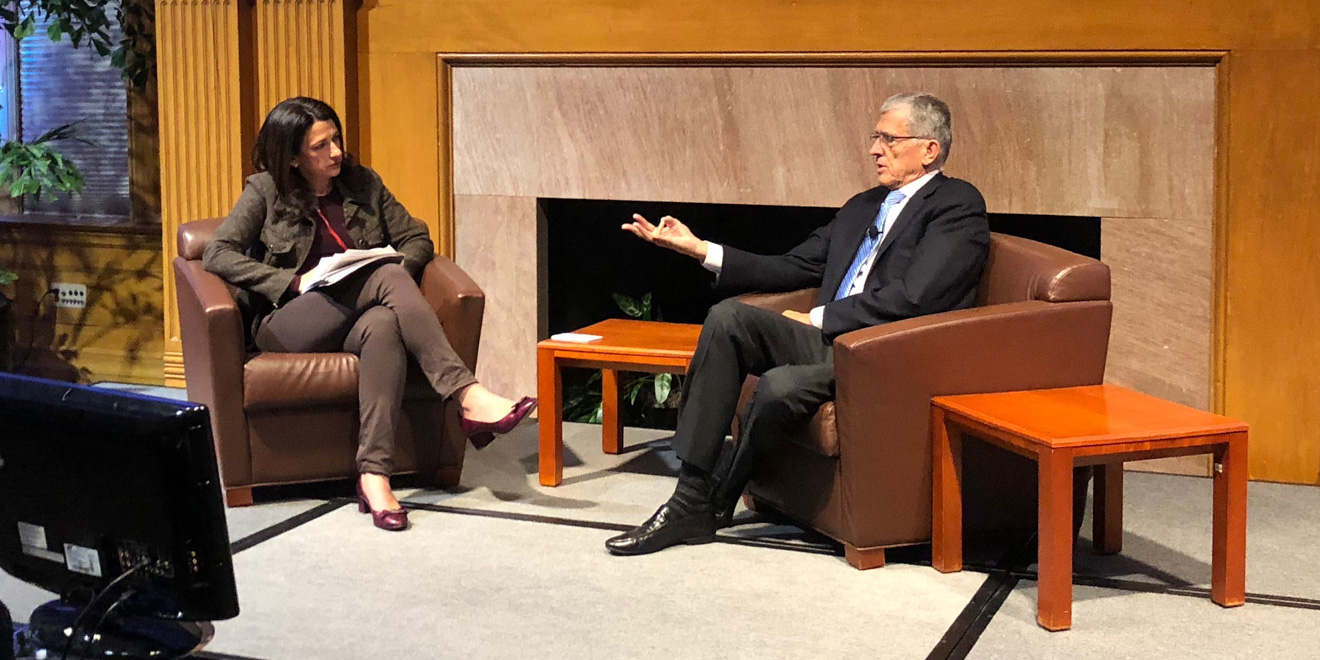The 52nd annual Carlos McClatchy Symposium took place on Friday evening at the Bechtel Conference Center. The annual event, which aims to evaluate the role and performance of journalism and mass media within democracy, focused on “Virtual Reality, Real Implications” this year and addressed issues ranging from the future of virtual reality (VR) technology to net neutrality.
The symposium featured various speakers, including former Federal Communications Commission (FCC) Chairman Tom Wheeler, Columbia School of Social Work Professor Courtney Cogburn and Philip Rosedale — founder of “Second Life,” a virtual world established in 2003. Jeremy Bailenson, communication professor and founding director of Stanford’s Virtual Human Interaction Lab (VHIL), also spoke.
Friday’s event featured VR devices for participants to use. President Marc Tessier-Lavigne and numerous industry professionals attended the symposium.
Wheeler, who chaired the FCC from 2013 to 2017 under Barack Obama, began his speech by reaffirming his support for net neutrality and expressing his opposition to the current FCC’s Restoring Internet Freedom ruling.
“What has made the internet the internet is the fact that anyone can get on [it],” Wheeler said. “We’re existing in a world right now … where the rules are being made by the people who are running the networks and the platforms. The question is: When will the people and their representatives step up?”
Wheeler referenced Donald Trump’s repeal of previous mandates on 5G cybersecurity and the FCC’s Restoring Internet Freedom order’s rollback of net neutrality regulation.
“My job was to represent the consumers in assuring a competitive and innovative market,” he said. “I don’t really believe that that’s the ongoing mindset of this administration.”
Addressing VR, Wheeler recognized the VHIL for its work in revealing the effects and implications of the technology. He said that the secondary impact of technologies in terms of their implications in other fields and for society are often more significant than the technology itself. Similarly, Wheeler expressed his faith in society’s ability to “domesticate” and govern new technologies.
Cogburn, who is a faculty affiliate with the Center on African American Politics and Society at Columbia University, used VR to create immersive environments promoting empathy. Cogburn’s project had participants experience through VR different stages in the life of an African American male, with scenarios including unfair disciplinary measures in preschool, an unfortunate encounter with the police and being slighted when applying for a job.
In speaking of the purpose of her project, Cogburn spoke of how a visceral experience of racism can contribute to developing the empathy necessary to deal with racial injustices. Cogburn emphasized the importance of an interdisciplinary approach towards reaping the full potential benefits of VR.
“Bringing people from different areas of expertise and perspectives was critical to what we were able to produce,” said Cogburn. “You need people who are rooted in the complexities of the social issues working with those who have the technical expertise.”
Rosedale, whose company aims to create a social VR platform, spoke about the future of VR technology and its use in helping people socialize.
Rosedale mentioned how latency affects the realism of online interactions. According to Rosedale, a delay of less than 100 milliseconds is the threshold for humans to perceive gestures as having no unusual lag.
“We’ve got to be able to engage in these worlds,” Rosedale said.
Contact Sean Chen at kxsean ‘at’ stanford.edu.
